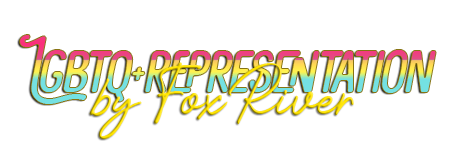Welcome back to another round of LGTBQ+ representation in entertainment! This time, I'd like to discuss children's entertainment with you. In 2007, GLAAD added the category to include kids and family programming, but struggled to find five nominations for this new category, which means that there weren't many shows within this category that fit. By the time 2018 came around, they had to expand the amount of nominations because so much improvement had happened in this short time. They showcase two different categories, one focused on younger children and one for older children. Why is representation in children's shows so important? Well, because it matters a lot for how a kid sees themselves as well as others around them.
First, we're focusing on one of this year's nominations - The Baby-Sitters Club (2020 TV Series). It also won the Outstanding Achievement in Youth Programming from the TCA Awards this year. One of the more noteworthy (for the purpose of this article) members of this club is Dawn Schafer, who's recently moved. Dawn identifies as queer as well as unlabeled. Some fans like to label her as pansexual, since she states she could end up with anyone on the gender spectrum, but she doesn't like labels.
The first season also features an important scene in the hospital featuring a young transgender girl, Bailey. Dawn uses an example of comparing it to using your dominant hand after being forced not to for years and years. This helps her fellow babysitter Mary Anne understand the principle of being transgender a bit more, as she didn't quite understand what it meant before aside from knowing that pink princess clothes helped people see Bailey for who she is. As Mary Anne takes Bailey to the hospital, doctors continuously misgender Bailey and use he/him pronouns which is when she speaks up and teaches the adults to use the correct pronouns instead. An important note is also that Bailey was played by Kai Shappley, who's personally struggled with the religious community as a transgender person. Some other characters that are noteworthy are Jeanine, Claudia's sister, who confesses she has a girlfriend; Dawn's dad who identifies as homosexual, which is why he split up from Dawn's mom; and Charlotte's mom, Dr. Johanssen, who identifies as a lesbian.
Next up, we've got this year's winner, She-Ra and the Princesses of Power. Well, actually it tied with First Day, but we've already discussed that mini-series in the first issue of Prism! Now, even before its release, the creators stated that this series would be full of LGTBQ+ representation, and a website commented that in every aspect, it reads as utterly queer. None of the characters in the show are shown as clearly heterosexual, and many are fluid both in relation to sexuality and gender identity. Early on, Stevenson mentioned that there had to be plausible deniability regarding the queer relationships, which only changed once there was a positive response to the show. With the change, it allowed Stevenson to make a queer relationship between the leads to be the climax of the show.
When a network executive asked Stevenson what the rainbow meant in the season finale of the first season, her reply was that it stood for the gay agenda. She has admitted to some shortcomings of the show, especially in response to the non-binary character Double Trouble, who was introduced in the fourth season. She thought the conversation that was held was important because it made her see those different points of view she had not considered, and that they could've done it differently. Double Trouble was played by non-binary actor Jacob Tobia (they/them), who stated that the diversity of the non-binary community needs to be reflected on screen, and that a statement should be made to viewers.
Now, let's quickly go over some of the confirmed LGTBQ+ characters, starting with the obvious main characters Adora and Catra, who have romantic tension between them from the beginning of the show. There's the relationship between Spinnerella and Netossa, gay couple Lance and George, and that Scorpia (Catra's right hand) has feelings for Catra, too. On Twitter, it was confirmed that Light Hope and Mara were in love. As for gender identities, there's the previous non-binary character Double Trouble who's also played by a non-binary actor, and the transgender man Jewelstar who's played by transgender actor Alex Blue Davis. There were intentions for a transgender woman, but sadly that character hasn't made it into the show.
We're making progress, slowly but surely, and I personally think that's amazing. I think the fact that She-Ra and the Princesses of Powers involves so many non-cishet characters and actors is amazing, and something many other directors, producers, and others can learn from.

